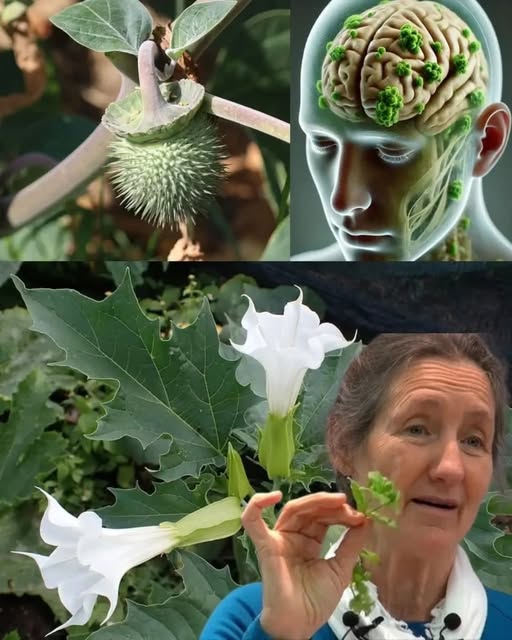ADVERTISEMENT
The genus Datura, often called Devil’s Trumpet or Thorn Apple, perfectly illustrates nature’s paradox: stunning, large trumpet-shaped flowers paired with lethal toxicity. While many appreciate Datura’s dramatic blooms and spiky seed pods as ornamental plants, it’s vital to understand the hidden dangers lurking within every part of this plant.
What is Datura?
Datura belongs to the nightshade family (Solanaceae) and includes several species such as:
Datura stramonium (Jimsonweed)
Datura innoxia (Angel’s Trumpet)
Datura metel
Characteristics:
Large, fragrant trumpet-like flowers in white, purple, or yellow hues
Spiky, egg-shaped seed pods filled with numerous seeds
Bushy or sprawling growth habit, reaching up to 6 feet tall
Despite its ornamental appeal, all parts of the plant — seeds, flowers, leaves, roots — are highly toxic.
The Toxic Components of Datura
Datura’s toxicity stems from potent alkaloids:
Scopolamine
Atropine
Hyoscyamine
These tropane alkaloids disrupt the nervous system by blocking neurotransmitters, causing severe and sometimes fatal effects upon ingestion, inhalation, or even skin contact.
Symptoms of Datura Poisoning
Symptoms vary with exposure level:
ADVERTISEMENT
